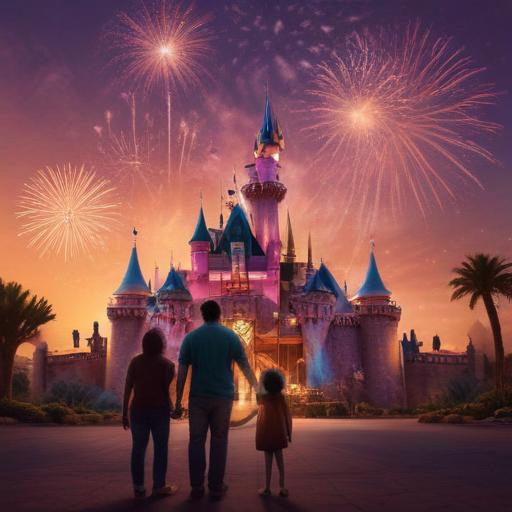In a momentous announcement, the Walt Disney Company has revealed plans for its first theme park in the Middle East, set to be constructed in Abu Dhabi on Yas Island. Developed in partnership with local company Miral, Disneyland Abu Dhabi will be Disney’s seventh global resort and marks its first new resort in over fifteen years, boasting cutting-edge technology throughout.
Abu Dhabi aims to leverage this attraction as part of a larger strategy to reshape its international image and extend its influence through cultural initiatives. CEO Robert A. Iger emphasized that the park will reflect both Disney’s essence and Emirati culture, encapsulating a blend of traditional themes and global appeal.
Disneyland Abu Dhabi ties into the UAE’s broader ambition to enhance its soft power—a term popularized by political scientist Joseph Nye, which denotes a nation’s ability to influence others through cultural appeal rather than military strength. This park represents a strategic endeavor to portray the UAE as a modern and family-friendly destination, moving away from its past military engagements in the region and fostering deeper ties with international allies, particularly the United States.
The decision to open a Disney park in Abu Dhabi aligns with the country’s economic diversification goals, as oil revenues alone are no longer sufficient for national growth. The UAE has made significant strides since launching its national Soft Power Strategy in 2017, which seeks to use cultural initiatives to build a compelling national brand and promote tourism as a key component of a sustainable economy.
Disneyland Abu Dhabi joins an expanding portfolio of cultural attractions that include the Louvre Abu Dhabi and the upcoming Guggenheim Abu Dhabi, reinforcing the UAE’s status as a global cultural hub. By embedding itself into the local landscape, Disney not only delivers entertainment but also a message of safety, modernity, and trustworthiness.
As part of the regional soft power race, Disneyland Abu Dhabi reflects the UAE’s commitment to cultural openness amid competition with neighbors like Saudi Arabia and Qatar, who are also pursuing vast entertainment and cultural initiatives. The evolution of soft power in the Gulf highlights a strategic necessity for resilience in the post-oil economy, with Abu Dhabi leading the charge by fostering an image of intercultural dialogue and sustainability.
While challenges remain, particularly concerning labor conditions, the emphasis on cultural attraction rather than coercion could redefine how the UAE positions itself internationally. Disneyland is not just a park; it serves as a potent tool of statecraft, blending entertainment with a broader narrative of hope and modernization. The successful implementation of this strategy could pave the way for a new chapter in the region’s engagement with global audiences.
